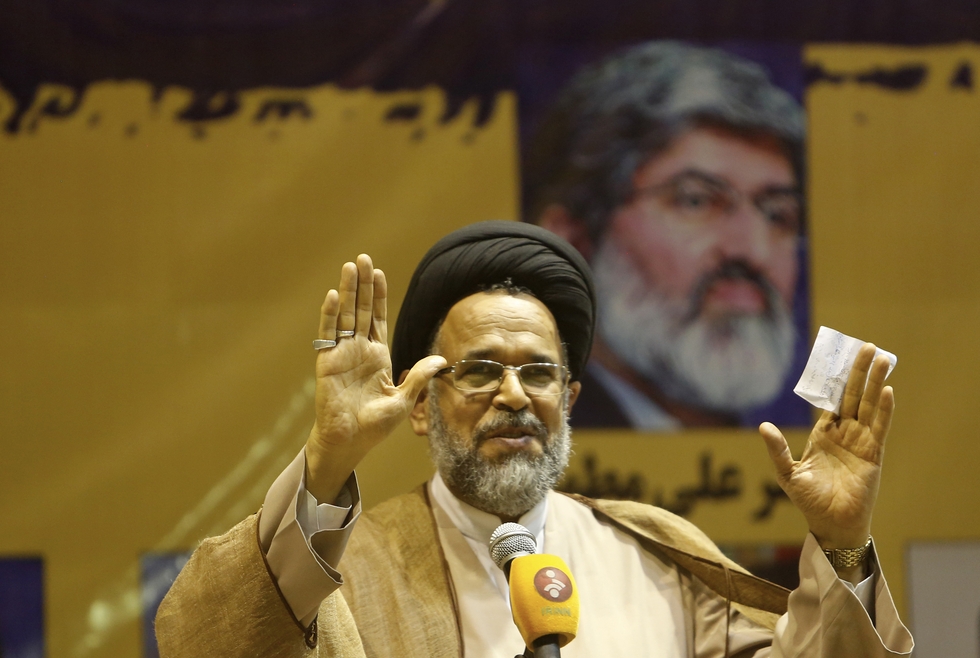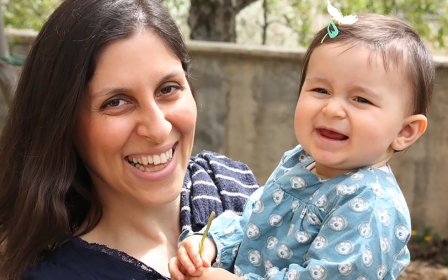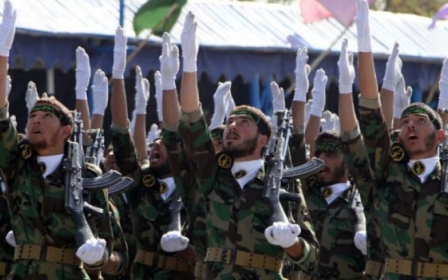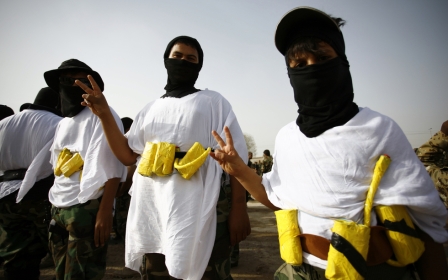Iran thwarts ‘one of the biggest terrorist plots' and blames Sunni groups

Iranian authorities announced on Monday the thwarting of a series of bomb attacks planned by Sunni militants, according to the semi-official Fars News Agency.
"One of the biggest terrorist plots of Takfiri Wahhabi groups was thwarted" in recent days, the intelligence ministry said in a statement, using the common Iranian term for militant Sunni groups.
"Takfiri" is a term used to describe a Muslim who accuses another of apostasy, and "Wahhabi" is a mostly derogatory term for those who adhere to an ultra-orthodox strand of Sunni Islam.
The attacks were to target the capital Tehran and other cities across the country during the Islamic holy month of Ramadan, according to the statement.
"The terrorists have been apprehended and a number of ready-to-explode bombs and a large amount of explosive materials has been discovered and seized from them," it said.
Ali Shamkhani, secretary of Iran’s Supreme National Security Council, was reported by the Fars News Agency as saying: “Wherever it may occur in Iran, any suspicious move will be swiftly detected; this is thanks to the presence of the people and capable and experienced organisations.”
The news comes less than a week after Iran announced it had foiled another militant plot, this time by the Islamic State group, which was targeting Iran’s restive western region.
Syrian opposition writer Noureddin al-Helby called the announcement at the time “simply theatrics that invites ridicule,” according to the Syrian-Kurdish ARA news agency.
Iran, a Shia majority country, has made much of its contribution in the fight against Sunni militants across the region and frames its support of embattled Syrian President Bashar al-Assad in this light.
This has led to suspicion on the part of some, particularly Syrian activists, as to the credibility of Iranian anti-terror reports.
The intelligence ministry statement contained little detail about the alleged plotters, saying: "Updated information will be released to the great Iranian nation as soon as the proper conditions are established.”
While Iran sees itself as in the forefront of the fight against Islamic State, its relationship with senior al-Qaeda figures is controversial, since it harboured some of the group's leaders who fled from Afghanistan following the September 11 attacks on the US.
Naame Shaam, an NGO focusing on Iran’s role in Syria, produced a 105-page report in 2014 claiming that al-Qaeda and IS were under orders not to attack Iran in order to preserve their supply networks – an accusation supported by the US government, according to The Daily Beast news website.
Last Wednesday, clashes between Iranian government forces and the Kurdish secessionists led to 15 deaths in northwest Iran.
Three of those killed were from Iran’s elite Revolutionary Guards, the remaining 12 from the Iranian-Kurdish PJAK movement, which the Iranian government considers to be a terrorist organisation.
Last May, Iranian Intelligence Minister Mahmoud Alavi announced that 20 militant groups panning attacks across the country had been dismantled, according to the semi-official Press TV.
This article is available in French on Middle East Eye French edition.
New MEE newsletter: Jerusalem Dispatch
Sign up to get the latest insights and analysis on Israel-Palestine, alongside Turkey Unpacked and other MEE newsletters
Middle East Eye delivers independent and unrivalled coverage and analysis of the Middle East, North Africa and beyond. To learn more about republishing this content and the associated fees, please fill out this form. More about MEE can be found here.




